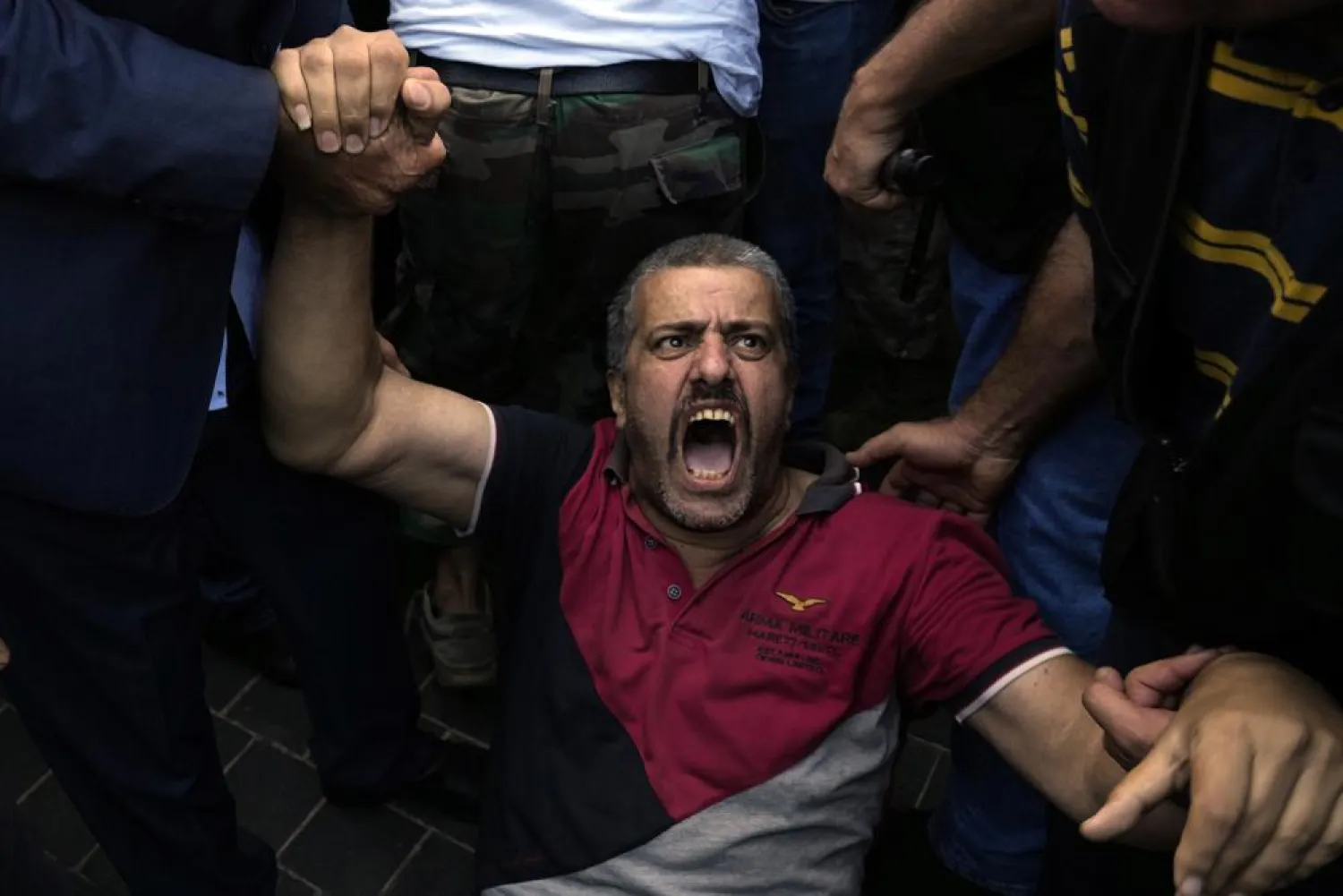Lebanese army retirees scuffled with parliamentary guard troops as they briefly broke through a cordon leading to Parliament in downtown Beirut during a rally Monday over their decimated monthly pay amid the country’s economic meltdown.
The troops managed to push the crowd back and fired teargas, forcing the elderly retirees to turn away from the street. After a short while, they gathered nearby to continue their protest and demand higher pay.
The rally came as banks in this crisis-hit Lebanon partially reopened Monday following a weeklong closure amid a wave of heists in which assailants stormed at least seven bank branches earlier this month, demanding to withdraw their trapped savings. The Association of Banks in Lebanon had said last Monday it was going on strike amid bank holdups by depositors and activists.
Public sector workers and retired officers and soldiers frequently protest in Lebanon, demanding better wages and pensions. However, scuffles with active officers are a sign of the ongoing meltdown and growing chaos in the tiny Mideast nation.
Lebanon’s cash-strapped banks had last closed for a prolonged period back in October 2019, for two weeks, during mass anti-government protests triggered by the crisis. That year, the banks imposed strict limits on cash withdrawals, tying up the savings of millions of people.
The country’s economy has since spiraled, with about three-quarters of the population plunged into poverty. The Lebanese pound has lost over 90% of its value against the dollar.
The frustrations boiled over this month, with angry and desperate depositors — including one armed with a hunting rifle — started holding up the banks. One of them, Sali Hafez, broke into a Beirut bank branch with a fake pistol and retrieved some $13,000 in her savings to cover her sister’s cancer treatment.
However, only a handful of bank branches opened Monday — accepting only customers with prior appointments for corporate transactions. The partial reopening was to continue indefinitely, until banks can secure the safety of their employees.
Crowds of anxious Lebanese gathered around ATM machines.
“I’ve been here for three hours, and they won’t let me in or schedule an appoint,” Fadi Al-Osta told The Associated Press outside a bank branch in Beirut. “The security guards can let us in one at a time and check for weapons. Isn’t that their job?”
George al-Hajj, president of Lebanon’s Federation of Bank Employees Syndicates, said branches have downsized, to have a larger number of security guards per branch.
“Our goal isn’t to harm anyone, but we want to go to work feeling safe and secure,” al-Hajj said. “We’re also human beings.”
Tensions were simmering in the southern city of Sidon, where State Security forces armed with assault rifles stood outside some bank branches. Some police officers and army soldiers, whose salaries have lost over 90% of their value, unsuccessfully tried to break into a bank branch to collect small cash bonus recently granted by the government.
Depositors’ Outcry, a protest group that has supported bank heists to retrieve savings, said Monday it was committed to a “war on the banks” but that it had also called for a meeting with the bankers to find solutions so that “depositors can live with dignity.”
“We will continue organizing actions, including strong actions that will target and shock the banks,” said the group’s media coordinator, Moussa Agassi.
Lebanon’s talks with the International Monetary Fund on a bailout have progressed sluggishly, with authorities failing to implement critical reforms, including restructuring the banking sector and lifting banking secrecy laws. Last week, a visiting IMF delegation criticized the government’s slowness to implement desperately-needed financial reforms.









